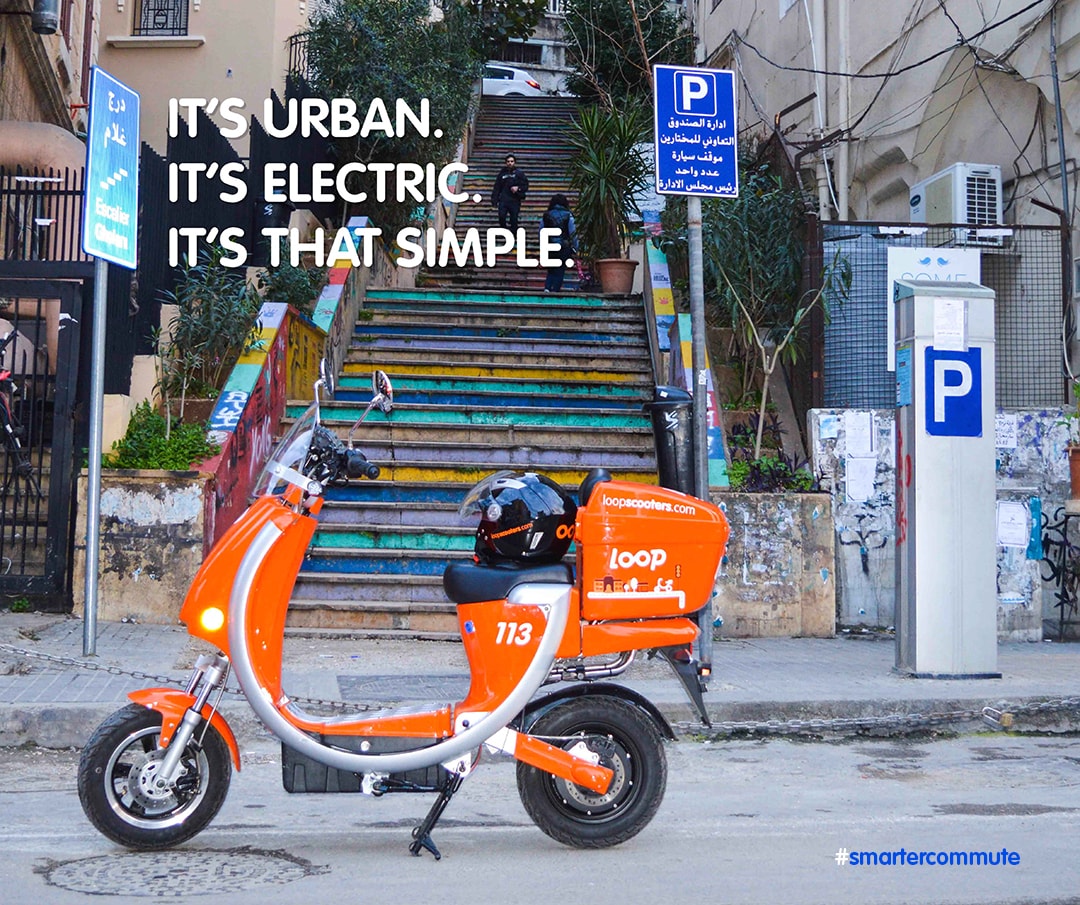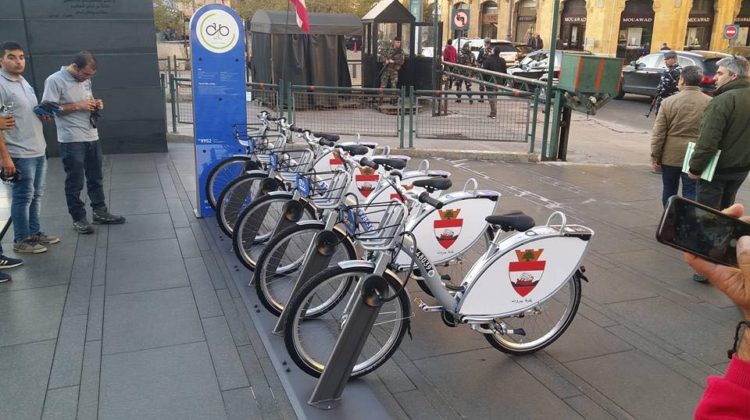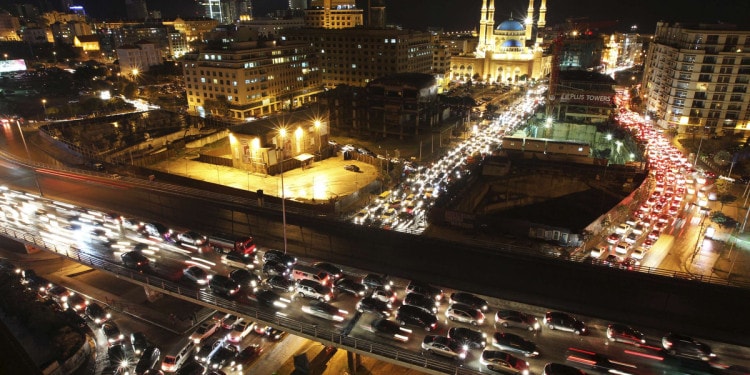Seasonal bottlenecks are common in the world. However, Lebanon suffers from a chronic traffic problem which dates to the end of the 15-year civil war, in the 1990s. In 1995, a transportation plan was envisaged for the greater Beirut area. If this plan had been implemented, the Beirut we know today would look very different. Instead, we just have ink on paper, unregulated public transport (bus lines and taxi service), no metro lines, and no rail service.

IN THE PHOTO: Beirut. PHOTO CREDIT: Piotr Chrobot on Unsplash
As a considerable number of Lebanese citizens commute to the capital on a daily basis, the Greater Beirut area witnesses a large congestion problem especially at its North, East and South entrances. These corridors experience average speeds as low as 10-30 km/h which in turn increase trip times by around 50-70 percent. This costs the Lebanese economy $2 Billion in losses on a yearly basis: 5 percent of the country’s GDP (The Daily Star, 2017).
Lebanon has failed at implementing a sustainable transport system for the country and for the capital, Beirut. It is ranked 124th in terms of quality of roads among 138 countries, according to the 2016-17 Competitiveness Index of the World Economic Forum. Building more roads, demolishing buildings to make space for more cars, and adding more parking spaces will only make the problem worse.
Lebanese citizens and entrepreneurs have risen up to the challenge and offered various solutions to this crisis.
Carpolo

The Lebanese rely on private cars for their commute. However, the occupancy rate is a mere 1.2 people per vehicle. With an increasing number of cars on the road, the Lebanese spend more than 16 percent of their productive time commuting. The road network cannot accommodate a growing number of vehicles.
Carpolo offers carpooling as a solution. The platform acts as a search engine for unused car space. It motivates drivers to list their empty seats on the app: the platform operates around a gamified points reward system and offers user verification and real-time carpool tracking as well. A gamified points reward system is the essence of the platform. The ‘Don’t Drive’ campaign – in collaboration with telecom giant Touch – encourages passengers and drivers to collect points in exchange for Touch magic lines and recharge vouchers. The top 5 carpoolers (for a duration of 3 months) will win prizes as well. On the B2B side, Carpolo allows measuring the number of carpools completed by each employee with the top carpoolers being eventually rewarded. B2B solution reduces cost and dependencies of parking.
Carpolo turns out to be a win-win situation for commuters. A carpooling community is created and users are matched together depending on the destination – ie. the driver doesn’t have to go out of their way for pick-ups. For the passenger, carpooling using Carpolo is free. The number of cars on the road is decreased which allows the commuters to arrive on time.
Loop

Scooters and motorcycles are abundant in Lebanon, especially in the capital. They are easy to manoeuvre and can navigate through traffic. Loop took another look at these popular means of transportation and combined Telematics technology and fleet management to reduce traffic.
Loop scooter sharing is a service allowing people to move around in the city on electric scooters conducting short trips for several purposes. The main aim is to avoid congested traffic and reach the destination on time. The user signs up through Loop app, attends an orientation session, books the nearest scooter anytime just by logging in to the app and enters a 4-digit PIN to unlock the scooter.
As the average consumer looks for efficient and affordable solutions to move around, Loop stands out as an option, with their eco-friendly aspect as a plus.
YallaBus
The Lebanese fleet of licensed commercial passenger transport vehicles consists of 39,000 vehicles. The majority are taxi-service automobiles and less than 20 percent is divided between vans and buses – which cater to less than 1.7 percent of the undertaken daily trips.
YallaBus aims to encourage commuters to make use of the already available buses. The mobile application (currently in development) will allow the user to insert their location and indicate their destination and the desired arrival time. The app will then provide the user with the fastest route to take, the number of bus changes necessary (if any) in addition to when and where to wait for the next bus. Both the user and the driver will be able to keep track of each other.
With a considerable number of Lebanese disregarding buses as viable transportation methods due to their lack of cleanliness, among other reasons, YallaBus offers a rating system where the user can provide insight on their experience. This should be an incentive to maintain a minimum quality of the transportation experience as well as normalize riding buses.
Bike 4 All

Bike 4 All is a pilot program deployed by the Beirut by Bike team and the Beirut Municipality. It’s the first bike-sharing initiative in Lebanon. A prototype has been introduced in Downtown Beirut with five bikes. The final number of stations will be around 25 and they will mainly be targeting the universities of the capital, with a firm belief that students will be the first to adopt this eco-friendly and affordable alternative. April 2017 has witnessed the mise-en-place of the first Beirut bike lane.
The country holds a great number of cycling enthusiasts with events and rides organized regularly by community members or organizations (Beirut by Bike, Cycling Circle, etc). However, it has a long way to go until its roads are deemed 100 percent safe for cyclists. Nevertheless, this still counts as a step in the right direction.














